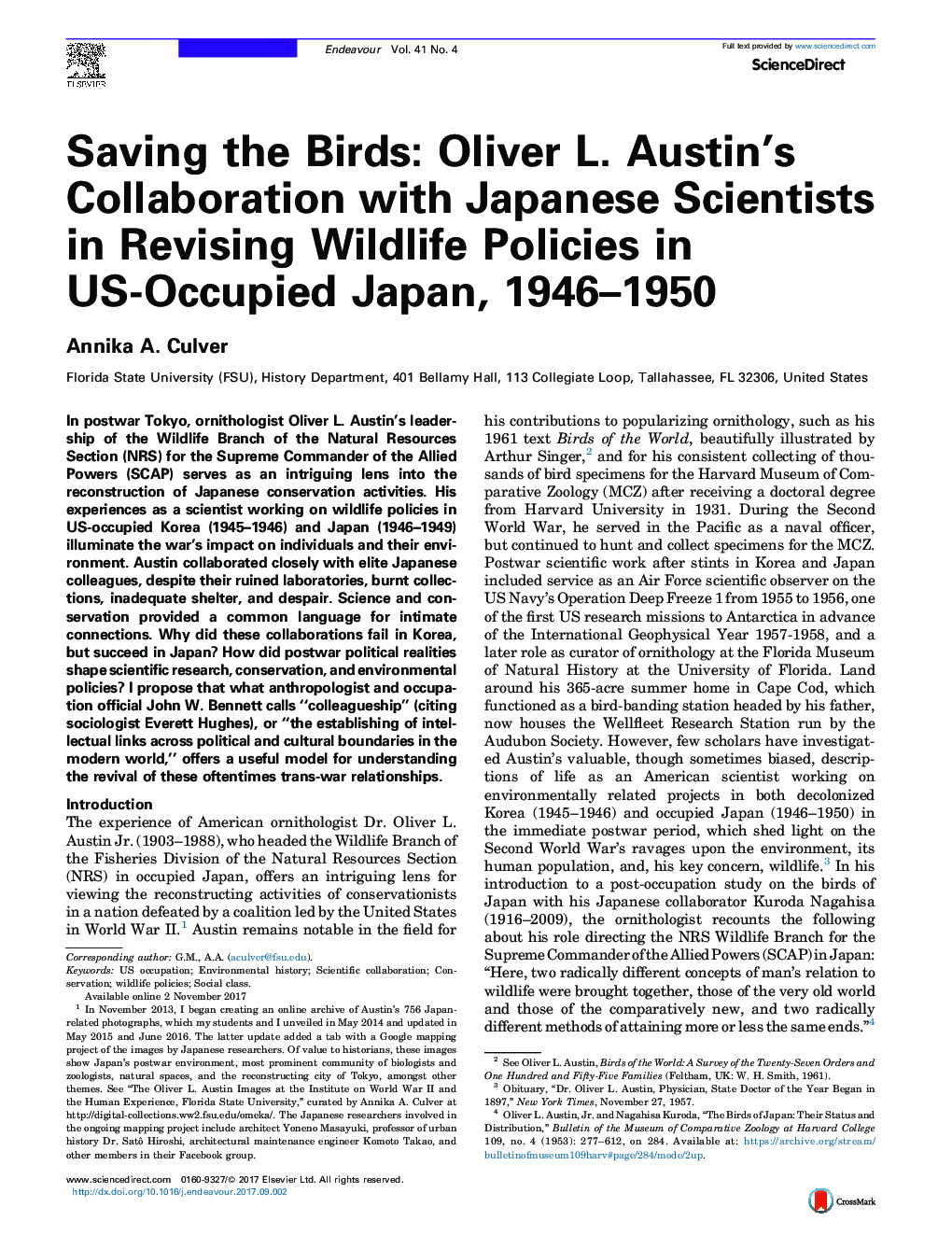| Article ID | Journal | Published Year | Pages | File Type |
|---|---|---|---|---|
| 7550867 | Endeavour | 2017 | 15 Pages |
Abstract
In postwar Tokyo, ornithologist Oliver L. Austin's leadership of the Wildlife Branch of the Natural Resources Section (NRS) for the Supreme Commander of the Allied Powers (SCAP) serves as an intriguing lens into the reconstruction of Japanese conservation activities. His experiences as a scientist working on wildlife policies in US-occupied Korea (1945-1946) and Japan (1946-1949) illuminate the war's impact on individuals and their environment. Austin collaborated closely with elite Japanese colleagues, despite their ruined laboratories, burnt collections, inadequate shelter, and despair. Science and conservation provided a common language for intimate connections. Why did these collaborations fail in Korea, but succeed in Japan? How did postwar political realities shape scientific research, conservation, and environmental policies? I propose that what anthropologist and occupation official John W. Bennett calls “colleagueship” (citing sociologist Everett Hughes), or “the establishing of intellectual links across political and cultural boundaries in the modern world,” offers a useful model for understanding the revival of these oftentimes trans-war relationships.
Related Topics
Social Sciences and Humanities
Arts and Humanities
History
Authors
Annika A. Culver,
